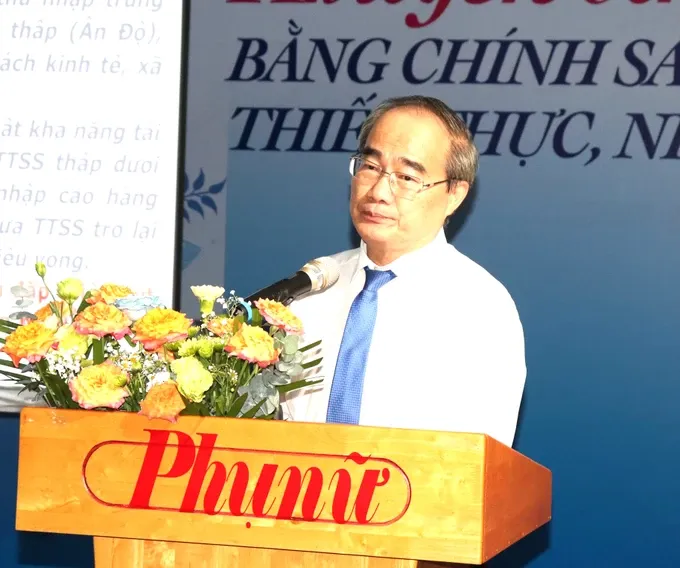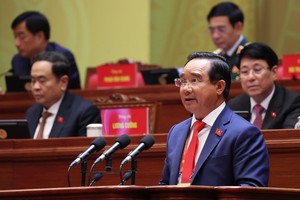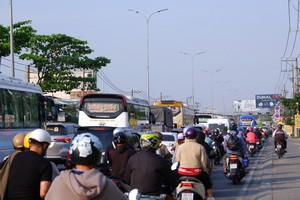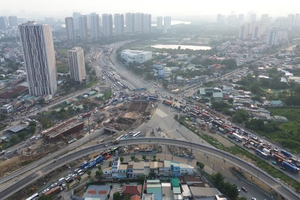
In a keynote address titled “Vietnam's Challenges before 2045 and Urgent, Comprehensive Solutions”, Prof Dr Nguyen Thien Nhan – former HCMC Party Chief – sounded the alarm on Vietnam's plummeting fertility rates, a trend mirrored globally.
He presented explanations for this birth rate decline, along with feasible solutions to tackle this. He argued for a paradigm shift in governance, emphasizing the need to prioritize the well-being of citizens and the nation's long-term sustainability over continuous GDP growth. Economic growth is only an important tool for sustainability.

Pham Chanh Trung, Director of the city's Population and Family Planning Agency, presented alarming data, revealing that HCMC’s total fertility rate in 2023 was a mere 1.32, far below the national average of 1.96. The city is now among the least fertile regions in Vietnam. To address this demographic challenge, HCMC is carefully considering policy adjustments based on global best practices and local feedback.
Another concerning trend identified by Director Pham Chanh Trung is the city's declining immigration rate. In 2023, the number of immigrants hit a new low of 0.67 percent, with natural population growth outpacing mechanical growth for the first time. This shift marks a significant departure from 2022 when both growth rates were equivalent at 0.7 percent.

Vice President Tran Thi Phuong Hoa of the HCMC Women's Union highlighted the organization's efforts to support young families through health education and parenting classes, aiming to promote larger families and happier family units.
Head Cao Thanh Binh of the Culture and Society Committee of the HCMC People's Council emphasized the council's commitment to addressing the issue of low birth rates through various resolutions.
These resolutions aim to achieve a balanced gender ratio at birth, optimize the demographic dividend, and adapt to an aging population while improving overall population quality. He proposed the implementation of a rewards system to incentivize individuals and organizations that contribute to population policy implementation.
The HCMC Department of Health has drafted a comprehensive population policy until 2030, set to be presented to the People's Council in late 2024. Key proposals include:
- Subsidizing pre-marital health check-ups for young couples.
- Providing financial support for prenatal care and childbirth for women who have two children before the age of 35.
- Implementing a comprehensive support system for families, including improved healthcare and education, affordable social housing, school fee exemption, increasing age limit for medical insurance to children, time shifts in kindergarten and nursery services, and personal income tax reduction or exemptions.
As Ho Chi Minh City grapples with a declining birth rate, these proposed policies represent a significant step towards addressing the demographic challenges facing the city and the nation.
























